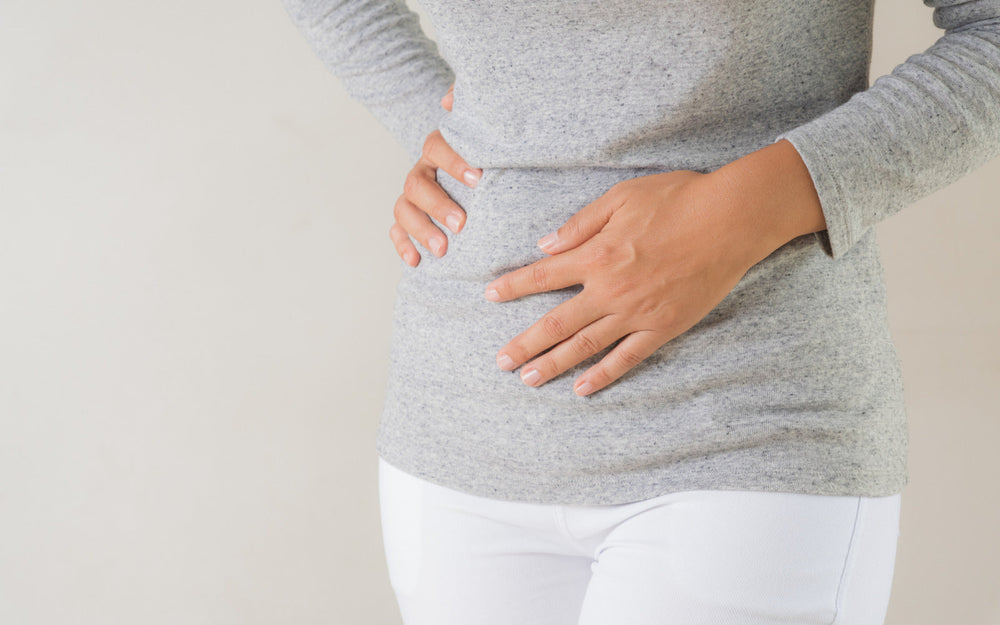
Why Am I Always Bloated? 4 Common Causes of Bloating Explained
If you’ve ever asked yourself, “Why do I feel bloated all the time?”—you’re not alone. Bloating is one of the most common digestive complaints, and while it can feel mysterious or unpredictable, there are often clear reasons behind it. In this article, we’ll break down four of the most common causes of bloating and what you can do to feel more comfortable day to day.
1. Swallowing Too Much Air
You may not even realize it, but daily habits like chewing gum, sipping carbonated drinks, smoking, or even chronic anxiety can lead to aerophagia, or swallowing excess air. Once that air enters your digestive tract, it can become trapped, causing feelings of pressure, fullness, and bloating.
How to reduce swallowed air:
- Cut back on gum and fizzy drinks
- Avoid drinking through straws
- Try mindful breathing exercises to reduce anxiety-related air swallowing
- Quit smoking (your gut—and lungs—will thank you!)
2. Excess Gas in the Bowels
Gas is a natural byproduct of digestion, but when it builds up in your intestines, it can cause uncomfortable bloating. This gas can be produced by:
- Carbon dioxide, from breaking down fat and protein
- Hydrogen, from fermentation of starches like wheat, oats, and corn
- Methane, created by certain bacteria in the gut
Your gut is home to trillions of microbes, and when certain bacteria dominate, gas production can increase significantly.
What to do about excess gas in the bowels:
- Pay attention to which foods trigger your bloating (keep a food journal)
- Eat slowly to aid digestion
- Consider a probiotic designed to help manage occasional gas and bloating*
3. Lactose or Fructose Intolerance
If your body doesn’t produce enough of the enzymes needed to break down lactose (in dairy) or fructose (in fruit or sweeteners), these sugars can end up fermenting in your gut—leading to gas, acid, and bloating. This type of food intolerance is common and often overlooked.
Signs you might be intolerant:
- Bloating, gas, or cramps shortly after eating dairy or fruit
- Feeling full or sluggish after small meals
- History of sensitivity to high-FODMAP foods
4. A Dysregulated Microbiome
One of the biggest culprits behind chronic bloating? An unbalanced gut microbiome. When there’s a higher ratio of unwanted bacteria to beneficial ones, it can lead to excess fermentation, gas buildup, and a sluggish digestive system.
Florastor® Advanced Gas & Bloat is formulated with the #1 selling probiotic strain worldwide, plus digestive enzymes and botanicals to help support digestive balance and protect against occasional gas and bloating.*
How to rebalance your gut:
- Add a clinically studied probiotic to your daily routine*
- Eat more prebiotic-rich foods (like garlic, onion, asparagus)
- Reduce processed food and excess sugar intake

FAQs About Bloating
Q: Why do I feel bloated even when I haven’t eaten much?
A: Bloating can result from gas buildup, food intolerances, or gut microbiome imbalance—even if you’ve eaten very little.
Q: What causes sudden bloating and gas?
A: Common causes include swallowing air, certain carbohydrates, dairy or fruit intolerances, and bacterial fermentation in the gut.
Q: How do I know if my bloating is due to gut imbalance?
A: Frequent bloating, irregular digestion, and discomfort after eating may indicate a dysregulated microbiome. A targeted probiotic can help.*
Q: Can probiotics reduce bloating?
A: Yes—especially if they’re formulated to protect against occasional gas and bloating, like Florastor® Advanced Gas & Bloat.*
The Bottom Line
Bloating is frustrating—but it doesn’t have to be a mystery. Whether it’s the air you swallow, the foods you eat, or the balance of bacteria in your gut, identifying the root cause is the first step toward relief.
Want support for occasional gas and bloating? Try Florastor Advanced Gas & Bloat, featuring Saccharomyces boulardii CNCM I-745® and targeted enzymes to help you feel your best.*